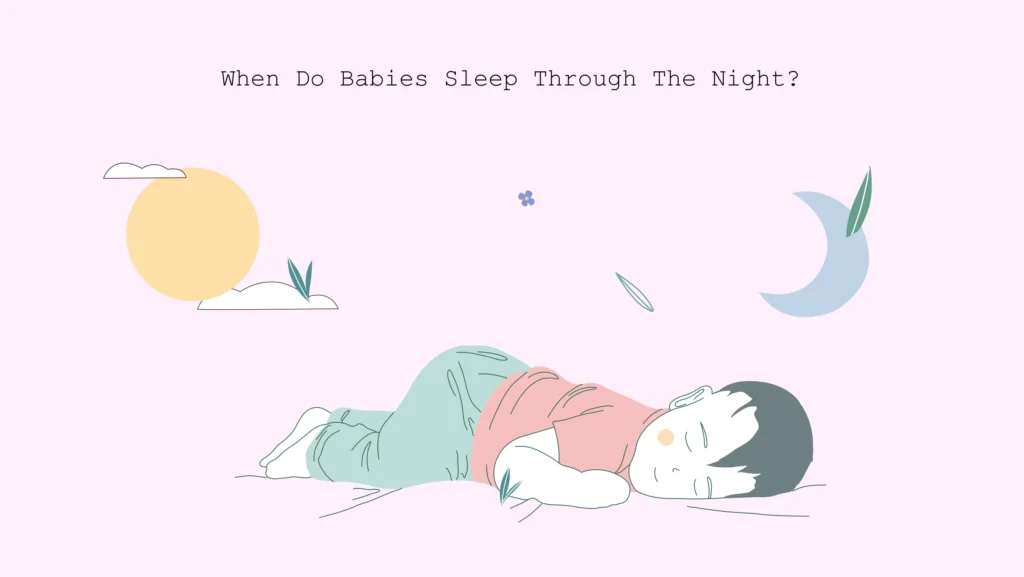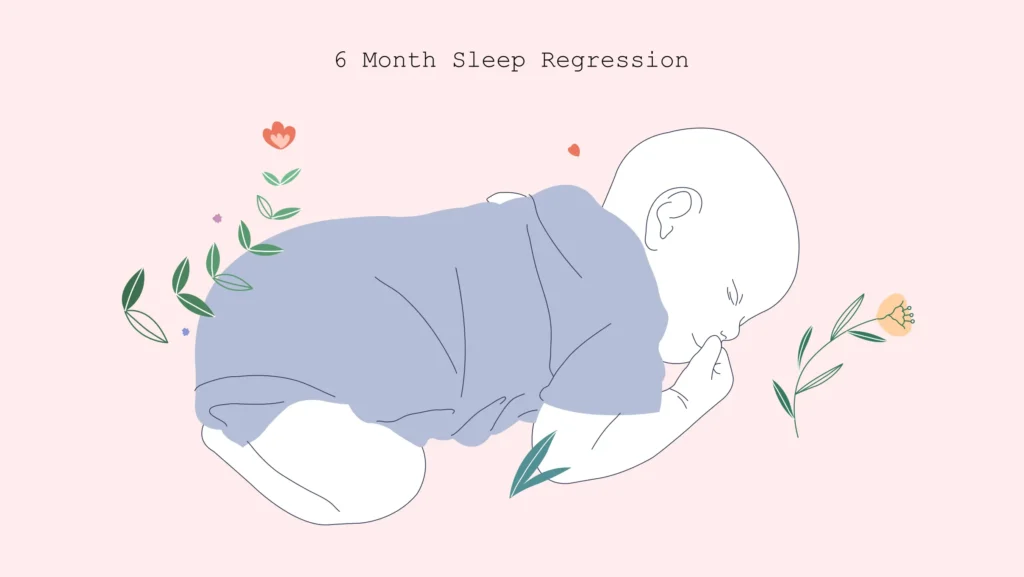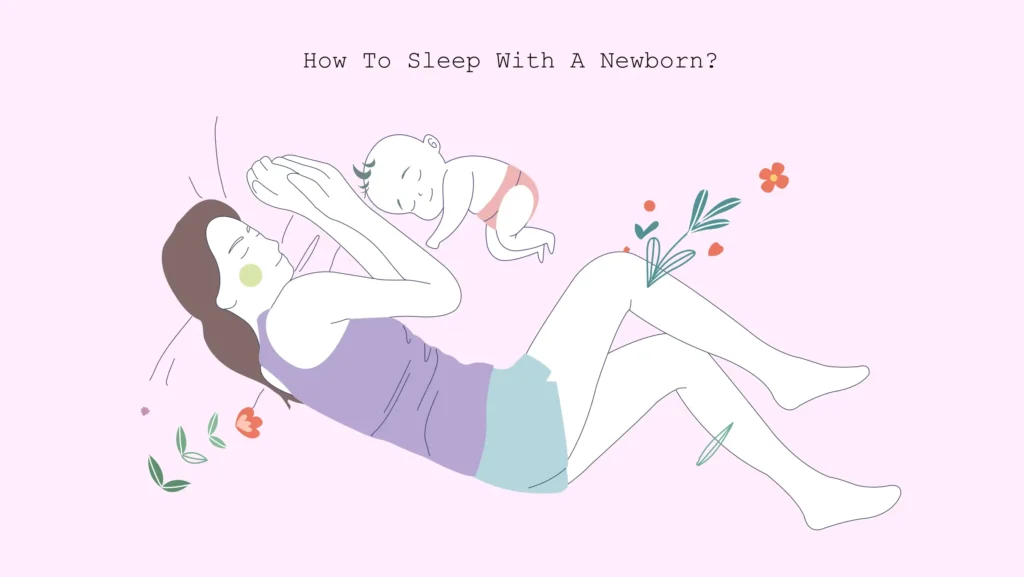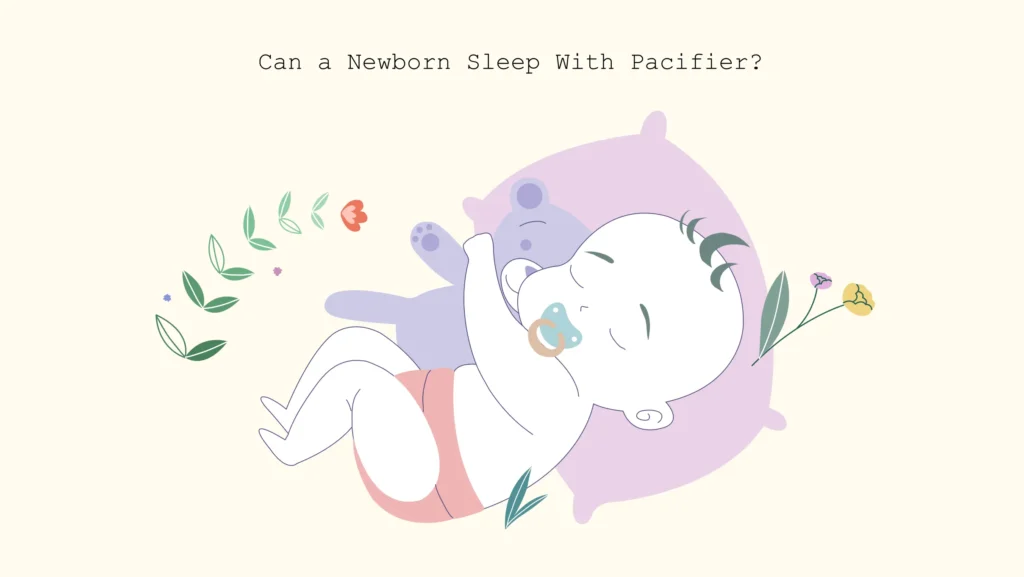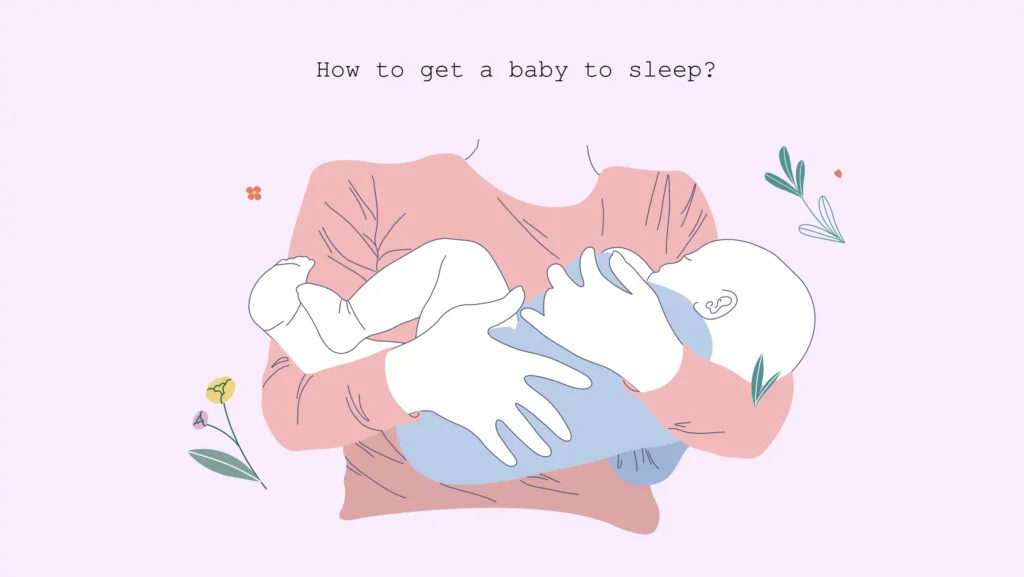18-Month Sleep Regression: Signs, Causes, and Tips
Written by

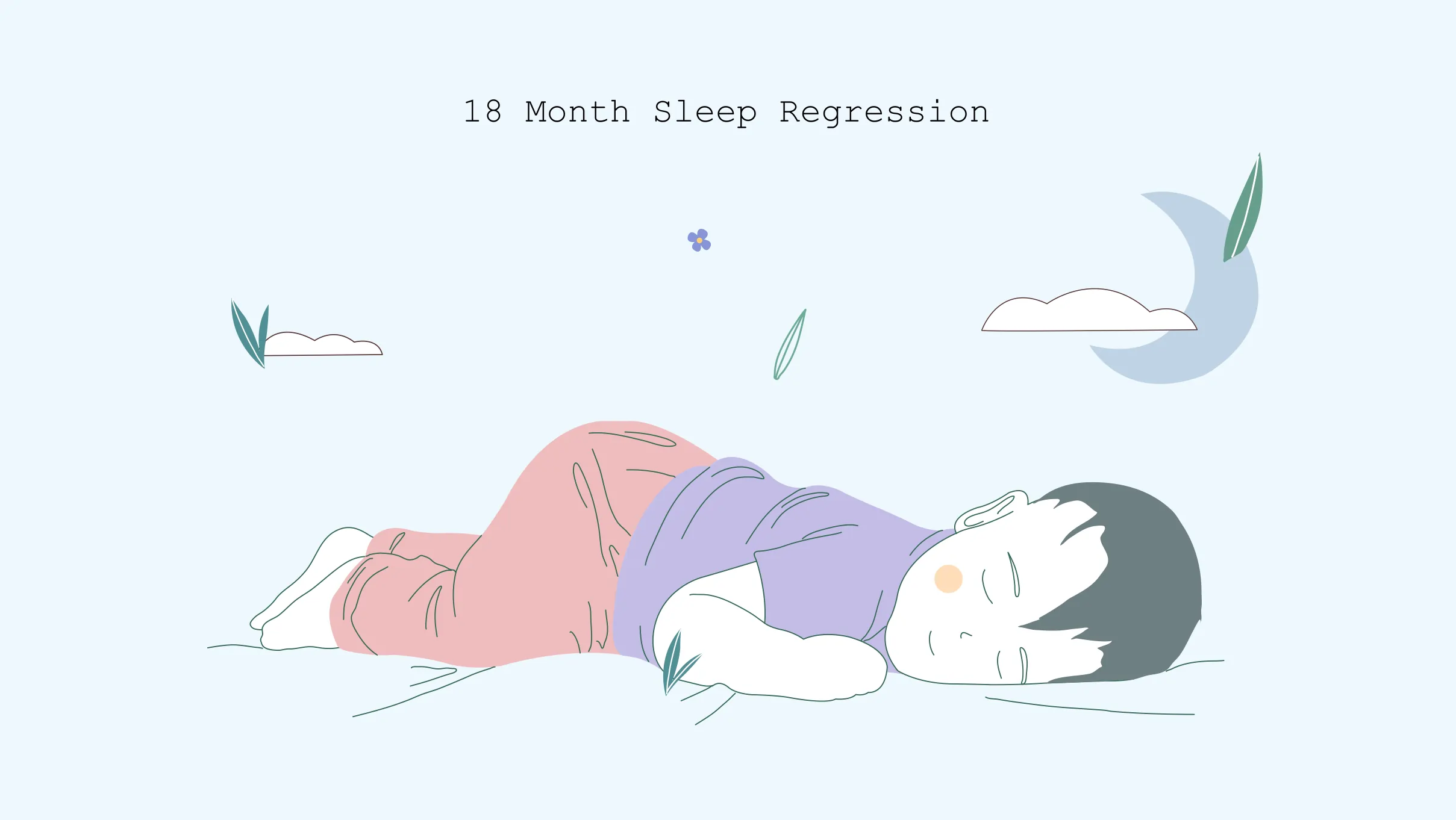
Your sweet and cuddly infant, who has recently transitioned to an active toddler, is again disrupting their sleep schedule. This is known as 18 month sleep regression. Is there an 18 month sleep regression? Yes, there is an 18 month sleep regression following the initial one at 9 or 10 months (in some cases, it may be the first).
Sleep regression occurs when an infant or toddler developing physical and mental abilities prevents them from going to bed at the right time or sleeping through the night. How to survive 18 month sleep regression is an important question because taking care of babies 18 month sleep regression(with more advanced skills) is more challenging than taking care of an infant at 8 or 10 months. Don’t worry, this is a temporary occurrence that won’t last long.
Read the article carefully to learn what an 18 month old sleep regression is, its symptoms, how to cope with it, and much more.
What Is the 18-Month Sleep Regression
When your child reaches the age of 18 months, they begin to experience the “18 month old sleep regression,” which includes skipping naps, more frequent nighttime awakenings, and disruptions to bedtime. Experts claim that all toddlers need 11 to 14 hours of sleep each day, most of which 18-month-olds get at night. In a few cases, a child’s sleep schedule can vary according to their developmental processes. But the 18-month sleep regression disrupts this healthy sleep pattern. This 18 month old sleep regression occurs due to significant physical, mental, and emotional evolution.
How Long Does the 18-Month Sleep Regression Last
This 18 month old sleep regression is a temporary condition that lasts for two to six weeks. While playing, enjoying themselves, and occasionally crying due to teething, your toddler’s newfound ability to finally communicate “no” before bedtime makes it more challenging to handle. Parents frequently wonder how to cope with sleep problems in an 18-month-old. Firstly, take a deep breath, notice those 18 month sleep regression signs, and deal with them in the finest way possible.
Symptoms of the 18-Month Sleep Regression
Stuck in finding the major signs to notice? Watch out for these 18 month sleep regression signs:
Fighting Bedtime
The first indicator of 18 month sleep regression is getting out of bed and not wanting to sleep at the right hour.
Nap Crying
Refusing to take naps throughout the day, cutting back from two naps a day to one, and crying uncontrollably if you try to make them fall asleep.
Waking at Night
Suddenly waking up at night and starting to cry in the Zzzs hours is another indicator.
Increased Fussiness
Increased irritation and sometimes crying due to the pain of teething and a bad mood at night(taking away their significant sleep hours).
Causes of the 18-Month Sleep Regression
Knowing the causes makes it easier to deal with sleep problems. Causes of 18 month old sleep regression include:
Separation Anxiety
Babies have a profound fear of their parents leaving them, which is at its peak during sleep regressions.
Teething
The toddler must be cutting their first canines or molars, so the pain, and swelling cause them to cry and disrupt their sleep patterns.
Bigger Vocabulary
You must be told “no” when putting them down for naps or bedtime. Their highly developed emotional reactions and urge to play are more exciting than sleeping.
Walking Milestone
Pulling out their favourite toys and walking around the house is more enjoyable than sleeping.
Fear of the Dark
Toddlers with better-developed cognitive abilities may have nightmares as they sleep because of a fear of the dark that prevents them from sleeping.
Illness
A fever, any kind of body ache, or a cold will eventually disrupt their sleep cycle.
Change in routine
A new companion (a sibling) or a change in daycare can affect the toddler’s sleep pattern.
How to Cope with Sleep Problems in an 18-Month-Old Sleep Regression
Making a few easy adjustments is necessary to manage sleep problems. However, 18 month sleep regression separation anxiety is the most difficult to manage. Here are the ways to survive an 18 month sleep regression:
Practice Your Routine
By providing them with a few indications of sleep, such as hugs, kisses, stories, and songs, try your best to maintain the schedule.
Don’t Overreact
Don’t get angry or overreact when your toddler wakes up at odd hours. Just take them back to bed, cuddle them, hum peaceful tunes.
Add a Friend
Those who fear the dark or have nightmares need a friend in the form of a stuffed animal or doll.
Revisit Sleep Training
It’s a good idea to go back to the source if you’ve done sleep training in the past or are considering doing so. In this case, it would be best to use a technique like the Ferber, bedtime fading, or chair method.
Let the Nap Go
If your toddler wants to skip a nap and starts crying badly, don’t force them to sleep. Let them play and avoid the nap for a few weeks!
Limit or Avoid Screen Time
Your child probably knows how to use a phone, watch cartoons on TV, and more by now, so putting them in front of a device right before bedtime could make it harder for them to sleep.
When to See a Doctor
If your toddler’s 18 month sleep regression lasts longer than 2–6 weeks, you must visit a paediatrician. Also, if you know the cause and have tried all your strategies to solve the issue and nothing works, your doctor will provide better suggestions. Other than this, consult your doctor if you or the doctor notices any severe issues such as abnormal breathing or significant snoring, major issues due to teething, regular fever, or any type of body ache.
Conclusion
18 month sleep regression is normal and gets better in a few weeks. Therefore, taking care of babies during their 18 month sleep regression is more important than worrying. What is the 18-month sleep regression? The symptoms of the 18-month sleep regression and how to cope with them are explained briefly in this article. Notice your toddler’s cause of 18 month old sleep regression and do your best to make them feel better.
FAQs
How do I break the 18 month sleep regression?
Here are a few ways to deal with 18 month sleep regression:
- Follow your routine
- Don’t overreact
- Revisit sleep training
- Let the nap go
- Limit screen time
What does the 18 month sleep regression look like?
Some regard the 18-month sleep regression as the most challenging of the common baby and toddler sleep regressions. During this period, your toddler may go from sleeping pretty well both day and night to waking up frequently or protesting sleep. Sometimes, your child could baulk at taking a nap or sleeping at all.
Why is my 18 month-old suddenly not sleeping?
Even though this brief alteration in sleep habits is referred to as a sleep regression, don’t lose heart—this is a sign of your child’s growth and development! The 18-month sleep regression shares similarities with other sleep regressions typically linked to physical and mental development milestones.
people like this article
Written by



